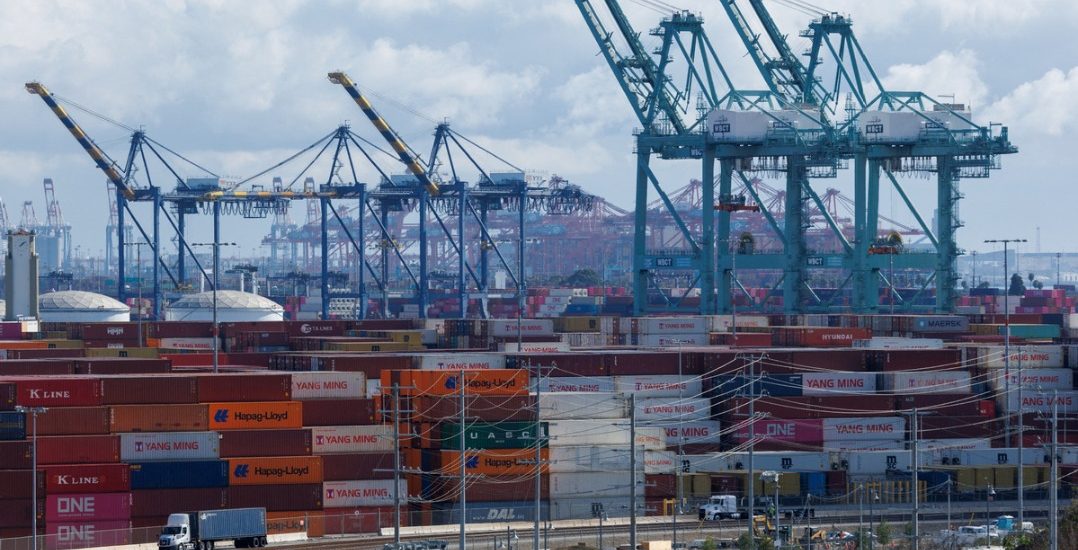- June 11, 2025
- Posted by: Regent Harbor Team
- Category: Global Economy

markdown
Contents
The Unfolding Trade Spat: A British Perspective
The world watches anxiously as the United States embarks on its trade skirmish, with China-US trade discussions taking the spotlight. This comes as the inaugural meeting of the China-US economic and trade consultation mechanism kicks off in the bustling city of London.
Tariff Troubles and Trump’s Predicament
US President Donald Trump persists with his tariff strategy, now in his second term. However, the global geopolitical and economic landscape has shifted, unfavorably for the US. Although Mr. Trump paints the trade war as a boon for the American economy, evidence suggests otherwise.
A Shifting Global Order
Amidst this economic turbulence, the US seems to be driving its allies away. Countries like Canada, the EU, and certain Asian economies voice their disapproval of new US tariffs. The European Union, poised for another negotiation round, has cautioned the US against elevating tariffs to 50 percent on steel and aluminum. In response, they prepare quick retaliatory measures.
China Filling the Global Void
China, on the other hand, is seizing this opportunity, reinforcing its diplomatic ties and fortifying its economy. By engaging in trade agreements with Japan, South Korea, ASEAN, and even Greenland, China emerges as a stabilising force on the world stage.
The Belt and Road Initiative
The Belt and Road Initiative has significantly diversified China’s trade portfolio, reducing reliance on the US market. ASEAN now ranks as China’s largest trading partner. Economic bonds with the EU, Africa, and the Middle East continue to flourish.
Domestic Dissonance and Legal Challenges
Trump’s tariffs have not been warmly welcomed at home. There’s mounting opposition from businesses, citizens, and even the judiciary. A US trade court has called out Trump for overstepping constitutional boundaries, claiming foreign trade regulation is Congressional territory. Although temporarily reinstating tariffs, their lasting legal standing wavers.
Economic Vulnerabilities and Strategic Mishaps
The US economy’s frailties are becoming more pronounced. Manufacturing has dwindled to a mere 10 percent of GDP. Consumption, however, dominates with nearly 70 percent. With imports on the rise, the trade deficit looms large. Morgan Stanley foresees a 9 percent decline in the US dollar, attributing it to a slowing economy and anticipated rate drops.
Business Concerns and Investor Apprehensions
Pressure mounts on the corporate front. CEOs foresee rising costs, and retail giant Walmart’s Doug McMillon warns of pricier goods for consumers. Legal battles, under the International Emergency Economic Powers Act, challenge the president’s strategy. Recession worries are escalating, with JPMorgan forecasting a 60 percent chance, and BlackRock’s Larry Fink intimating an impending downturn.
Conclusion: A Strategic Misadventure?
Without a coherent strategy, this trade war threatens the US’ economic equilibrium. It risks estranging allies and providing Beijing with a strategic edge. As Wharton’s Jeremy Siegel remarked, these tariffs might prove to be “the biggest policy mistake in 95 years”.
The author lectures at Vietnam National University, Ho Chi Minh City. These opinions don’t necessarily reflect China Daily’s stance.
Fancy sharing your expertise or thoughts on our stories? Email us at opinion@chinadaily.com.cn, and comment@chinadaily.com.cn.
